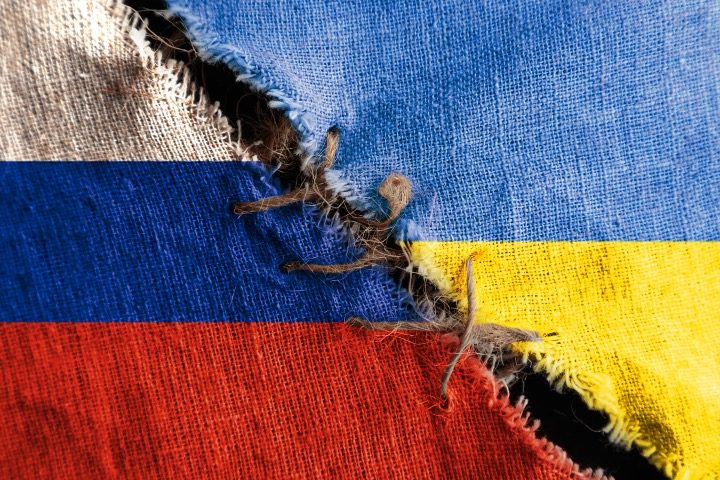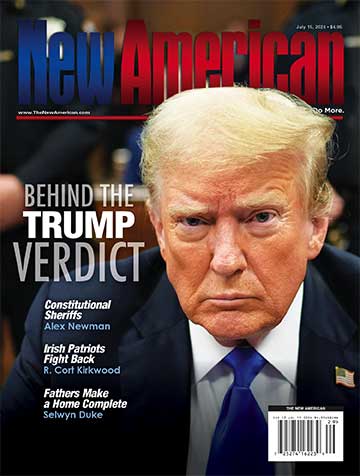
Western officials have been involved in private discussions with Kyiv about potential peace negotiations with Russia to explore possible concessions Ukraine might consider to end its conflict with Russia, according to a report by NBC News on November 4, citing sources.
Various U.S. officials acquainted with the matter reportedly characterized such talks, which happened during last month’s meeting of over 50 nations backing Kyiv, as “delicate.”
The NBC report stated that such discussions were propelled by rising concerns among Western officials that the conflict between Kyiv and Moscow “has reached a stalemate.” Western countries are also reportedly worried that Ukraine was “running out of forces,” and about their ability to continue supplying aid and arms to Kyiv.
Two NBC sources said that U.S. President Joe Biden has been preoccupied with Ukraine’s manpower issues, with one official admitting that, while the West can supply Kyiv with weapons, “if they don’t have competent forces to use them, it doesn’t do a lot of good.”
Reported concerns about Ukraine’s faltering military potential came amid Kyiv’s counteroffensive, which started in early June but has failed to make significant military gains. Russian Defense Minister Sergey Shoigu recently stated that “the Kyiv regime is losing,” with its forces suffering huge losses. Previously, Shoigu estimated Ukraine’s casualties at over 90,000 troops.
Another key worry is the recent conflict between Hamas and Israel, which has diverted public attention away from tensions between Russia and Ukraine, potentially making new aid packages more challenging to obtain.
U.S. officials reportedly described circumstances on the battlefield as “a war of inches,” indicating that the outcome of the conflict will depend on how long each side can sustain a standing army, and NBC’s sources discreetly cautioned that Ukraine may only have several months “before more urgent discussions about peace negotiations should begin.”
Meanwhile, some Western officials reportedly suggested that NATO could offer Ukraine some security guarantees short of formal accession to the bloc, to motivate Ukraine to come to the negotiating table with Russia.
Officially in public, Biden has declared that Washington would not participate in any talks on the Ukraine conflict unless Kyiv wishes to. Although Moscow has never closed the door to negotiations with Kyiv, Ukrainian leader Volodymyr Zelensky signed a law in 2022 banning all interactions with Russia after four former Ukrainian regions overwhelmingly opted to join the country.
Over the weekend, Oleksii Mykolaiovych Arestovych, a former aide to Zelensky, declared in a series of Telegram posts that Ukraine has to “face reality” and recognize that it cannot triumph over Russia on the battlefield. Rather, Kyiv should seek peace with Moscow in exchange for NATO guarantees, the politician added.
The belief in a “swift and beautiful victory” by Ukraine over Russia is nothing but an “illusion,” Arestovych proclaimed. While the politician was at first quite positive about Kyiv’s prospects, he is currently admitting that the time has come for Kyiv to ditch the effort to defeat Russia in order to prevent a catastrophic scenario for Ukraine.
“The enemy is stronger in the economic, military, mobilizational and organizational sense,” he said, alluding to Russia. The Western nations that support Ukraine have no interest in seeing Russia defeated, he added. “Under the current circumstances, a military victory over Russia does not seem possible,” Arestovych posited.
A mere “belief in victory” is not enough, the former Zelensky aide asserted, urging Ukrainians to “get sober and face reality.”
If Kyiv persists with its “current ‘successful’ policy for another half a year,” Ukraine might “well forget about NATO,” Arestovych warned, adding that the nation’s Western supporters are purportedly already mulling over giving Kyiv certain NATO guarantees without a full membership.
The politician, who has publicly stated his presidential ambitions, recommended that Ukraine insist on NATO accession in exchange for a promise to not try to win back territories controlled by Russia via military means. “All the talk about returning to the 1991 borders through military actions under the current circumstances can only be lip service,” he added.
Arestovych has already provided a series of increasingly bleak predictions of Ukraine’s near future in the upcoming months, warning in August that an invasion of Crimea would incur 200,000 Ukrainian casualties, and predicting that the Russo-Ukrainian conflict could drag on until 2035.
Notably, Arestovych called for leadership change in Ukraine’s government, as the Zelensky-led government is beleaguered by corruption and incompetence. Previously, Arestovych declared that the Ukrainian political leadership was not considering the reality on the ground but pursuing symbolic victories rather than an “adequate strategy.”
Arestovich’s statement came just days after Ukraine’s top military commander, General Valery Zaluzhny, told The Economist that the conflict had reached a World War I-style stalemate, but that Russia had an advantage owing to its larger population and resources.
Meanwhile, Nikolay Patrushev, the secretary of Russia’s Security Council, said on November 5 when speaking at the ‘Russia’ exhibition in Moscow that not all Ukrainian elites and politicians were in favor of Kyiv’s present hostile position toward Moscow.
“Rational actors” do exist in Ukraine, but are presently “suppressed” by the Kyiv government, Patrushev contended.
These forces are already “standing in the wings” and are ready to assume control when the time is right, the former Russian Federal Security Service (FSB) chief said, without providing details as to whom he was alluding.
He added that the Ukrainian governments after the Maidan coup, including the present one led by Zelensky, are “bound to answer” for all atrocities committed in Ukraine since 2014, including the long-standing persecution of the Russian-speaking minority and the people of Donbass, as well as the assaults on Russian civilians, public figures, journalists, and infrastructure.
“They will not be able to hide from a just people’s court like the former SS member Yaroslav Hunka,” Patrushev said, referring to a Ukrainian SS veteran hailed by Canada’s Parliament during a visit by Zelensky in September. The incident in the Canadian Parliament incited angry outbursts from Poland, Russia, and several Jewish groups, leading to the resignation of Canadian House of Commons Speaker Anthony Rota, who claimed that he was incognizant of Hunka’s past.



